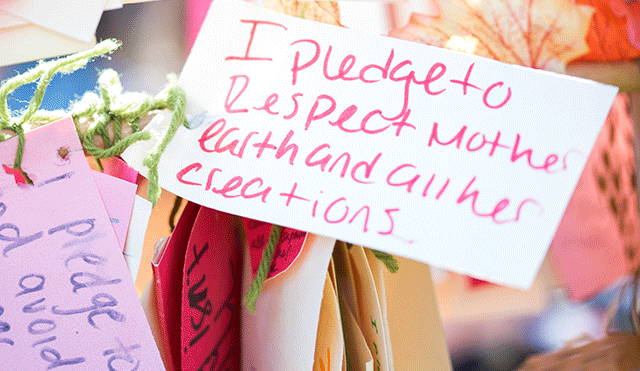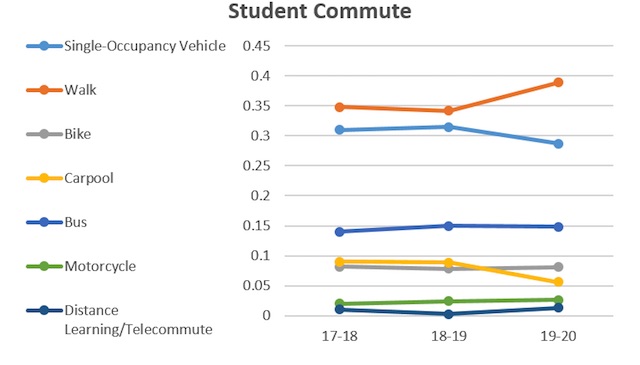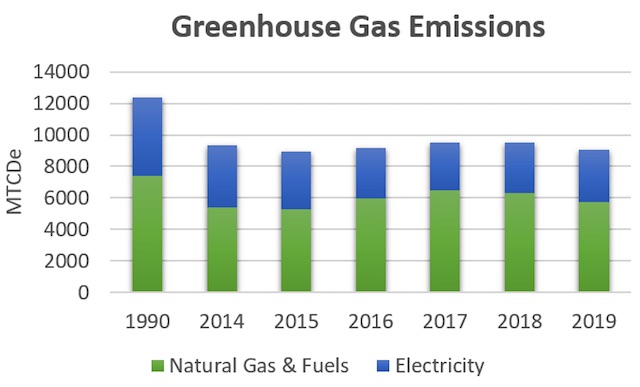
The dashboard corrals the campus’ wide-ranging endeavors to weave environmental awareness and action into every corner of campus life. By making long-term projects digestible, the hope is to motivate everyday conservation on campus and off.
“Sustainability is complicated, so we wanted to make a single go-to location for folks to get a better understanding of how Humboldt State is moving toward its sustainability goals,” said HSU Climate Action Analyst Morgan King.
The dashboard uses data visualization to measure not only big targets like gas and electric usage, but also how many departments include sustainability into their academic practices.
Sustainability is a popular topic at HSU: 40% of Lumberjacks viewed the University’s sustainability record as a reason for choosing the Humboldt State, and 60% of current students would like more sustainability content in the classroom.
“We know a lot of students choose HSU for our sustainability efforts, and we want to foster conversation about the work already underway,” says King

Other benchmarks include transportation, divestment from fossil fuels, community engagement endeavors, and more. The dashboard is regularly updated to keep the campus informed on current metrics, projects and resources.
This dashboard is brought to you by the HSU Advisory Committee on Sustainability (HACS), a group of students, faculty and staff who believe that continual improvement in sustainability can be achieved with transparency and accountability.

HSU has been at the forefront of sustainability. In 1987, HSU students and community members started the Graduation Pledge of Social & Environmental Responsibility, which garnered national attention and has been adopted by universities around the world. In 2011, HSU made headlines when it banned the sale of plastic water bottles on campus. The Humboldt State University Foundation increased its investments in socially and environmentally responsible institutional mutual funds to 26 percent. HSU’s sustainability programs include the Waste Reduction and Resource Awareness Program (WRRAP), which is hosting its fifth annual Zero Waste Conference.
For its eco-friendly efforts, HSU earned a STARS Gold rating from the Association for the Advancement of Sustainability in Higher Education.